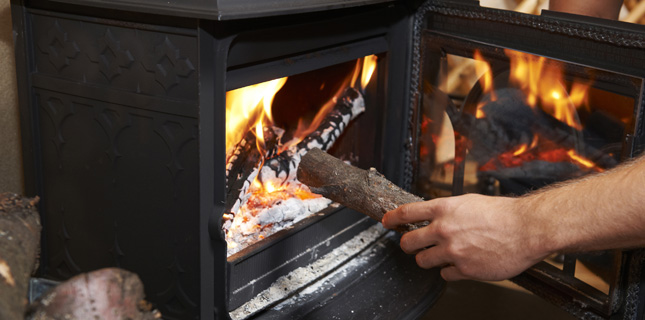

Indoor air pollution, including that caused by emissions from faulty boilers, gas cookers and heaters, cause or contribute to at least 40,000 UK deaths each year, according to a new report from two major UK health bodies.
The research from the Royal College of Physicians and the Royal College of Paediatrics and Child Health makes direct reference to the impact of indoor air quality (IAQ) on human health and premature death rates.
While both colleges said more specific research was needed into the key risk factors, the reports said it was clear that increased levels of airtightness were adding to a growing problem.
The reports point to emissions from faulty boilers, gas cookers and heaters, as well as irritant chemicals from new furniture, air fresheners and household cleaning products, as contributing to rising health problems inside well-sealed buildings. House-dust mites, mould and dander from pets can also damage health, particularly in unborn and young children, the report said.
"The developing heart, lung, brain, hormone systems and immunity can all be harmed by pollution," the report said. "Research is beginning to point towards effects on growth, intelligence, asthma, and development of the brain and coordination. Harm to babies and children will have an impact that lasts far into the future."
Dr Andrew Goddard, at the Royal College of Physicians, said: "Taking action to tackle air pollution in the UK will reduce the pain and suffering for many people with long term chronic health conditions, not to mention lessening the long term demands on our NHS."
While the report highlights the need for a wide-ranging set of measures to tackle the problem of outdoor air pollution, including tougher regulations such as reliable testing of emissions from vehicles, it also calls for more and deeper research into indoor air pollution, stating: "We must strengthen our understanding of the key risk factors and effects of poor air quality in our homes, schools and workplaces. The drive to reduce energy costs, by creating homes with tighter ventilation, could be making the situation worse."
David Frise, head of sustainability at the Building Engineering Services Association (BESA), commented: "The building engineering industry has been waiting a long time for the medical profession to acknowledge the seriousness of the problem inside buildings. There is no shortage of research looking at outdoor pollution, but as the situation worsens outside so does the impact on human health inside where we spend 90% of our time.
"Building services contractors have a range of techniques available for mitigating the impact of poor IAQ – what we need now is compelling evidence to encourage building owners and managers to face up to their responsibilities in this area. This new report and follow up research may be just what we have been waiting for."
The report also cited the increasing popularity of wood-burning stoves as contributing to the problem.
Julia Evans, chief executive of BSRIA, said: "BSRIA is very concerned about the announcement, but what some of this boils down to is approved fuels versus non-approved fuels. We know that wood-burning stoves serve as a carbon-neutral form of energy and used in the accurate manner are perfectly safe. Indeed, the increased popularity for this form of heating is due, in part, to policies to reduce carbon dioxide emissions. Sometimes, it is the users and installers who need to be educated in proper usage of such products. The widespread adoption of gas for domestic heating should still be viewed as a safe option."
If you'd like to keep up-to-date with the latest developments in the heating and plumbing industry, why not subscribe to our weekly newsletters? Just click the button below and you can ensure all the latest industry news and new product information lands in your inbox every week.